5th July 1880 — 26th May 1915
Private Herbert George Baker, Regimental Number 2308, was killed in action on the 26th May, 1915,
at the Battle of Festubert and is commemorated at Le Touret, Nord-Pas-de-Calais, France.
Introducing the Bakers
The villages of west Gloucestershire were the home of the Baker family at least going back as far as the 1700s. Every forebear of Herbert is to be found within a three-mile radius of the isolated hamlets and of East Dean in the Forest of Dean.
His immediate family’s history begins on Thursday, 31st January, 1878 when George Hook Baker married Elizabeth Price, a farmer’s daughter, in St. Michael and All Angels Parish Church, Mitcheldean. They were married for 41 years and their union was blessed with considerable issue: 2 sons and 7 daughters. All are recorded as having been born in Mitcheldean and Abinghall (Abenhall today) both of which are close by the East Dean area. In order the children born to George and Elizabeth were:
- Gertrude b.1879
- Herbert George, b. 1880
- Florence Lizzetta (or Lizzette), b. 1882
- Marcella, b.1883
- Joseph William, b.1885
- Effie Jane, b.1887
- Margaret Gwendoline, b.1888
- Laura Mary, b.1890
- Edith Louise, b.1892
George’s work is recorded in different ways over the years. Documents tell us that he worked with wood. Sometimes he is described as a Carpenter (1871, 1878, 1880, 1881, 1882, 1889, 1891, 1901, 1911, 1916, and 1918), interspersed with working as a Wheelwright (1881, 1885 and 1887). He must have been experienced in his craft as he is listed in the Gloucester County 1881 Register of Overseers. In 1901, the first year employment status was recorded, he is a ‘Worker’ (i.e. employed by another or a business) but worked on his ‘Own Account’ at other times. No trade is recorded against Elizabeth, who was single and 18 years old in the 1871 Census.
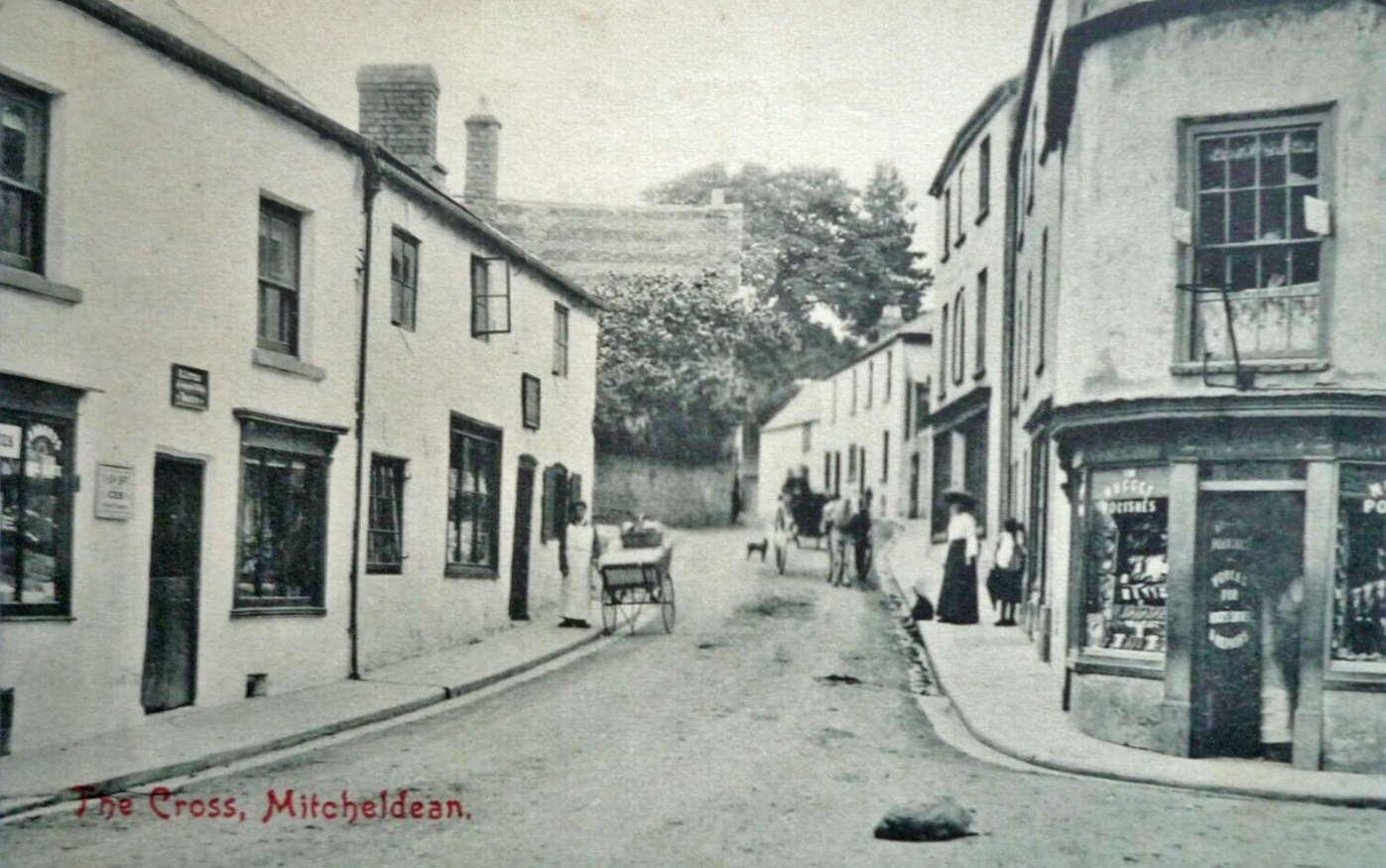
The religious background of the family is interesting. The children born between 1879 and 1883 were baptised into the Church of England, those from 1885 to 1888 were by non-conformist rite, and the final two, in 1890 and 1892, again Church of England. It is impossible to know the reasons behind the denominational changes but it may have had implications for Herbert later if the family did not have strong Church of England convictions.
Family Troubles
Feeding and clothing such a large family must have been a challenge as George, although having skill in his trade, seemingly had little head for business. During Herbert’s childhood the family must have existed on near subsistence level. His father’s actions were to make things more difficult than ever for Elizabeth and the children.
In February 1895 George is to be found in court for debts which he could not pay. These were not voluntary bankruptcy proceedings but were brought against him by a trade creditor.
George Hook Baker, carpenter and wheelwright, of Mitcheldean, was next examined. According to debtor’s statement of affairs his unsecured liabilities amounted to £157 5s. 6d.
Uncited and untraced transcript of a newspaper cutting
The debts were only one of his problems. The report of the hearing shows that he had continued to trade while insolvent
In reply to further questions debtor said he knew twelve months ago that he was going back in his trade, but he did not file his petition as he hoped for better times. About that time, he ordered some timber from Messrs. John Allen and Co., to the amount of £40
He had also had obtained a loan by misrepresenting the value of his securities, and had done so under oath, leaving him open to charges of obtaining monies under false pretences and perjury.
The Official Receiver (warmly): Are you aware that at this moment you stand liable to be prosecuted for perjury by making a false statement, and for obtaining money under false pretences? Debtor did not reply.
Finally, the Registrar’s questioning of him, guided no doubt by local knowledge, reveals an underlying problem which must have caused much additional hardship to the family:
Registrar: Was it because you spent so much time getting drunk that your wife started in business? Debtor: I never spent much time in that way. The Official Receiver: How much a week do you spend in the public-house? Debtor: About 2s. Registrar: You have a public-house conveniently near your house, have you not? Debtor: Yes. The Registrar: Does it adjoin your house? Debtor: No; there is one opposite. The Registrar: Is that your favourite? (Laughter.) Debtor: I have no favourite. The Registrar: Then you are a general lover, I suppose? Debtor: No.
There is no record of a prosecution for the two criminal charges but his name appears on the list of Receiving Orders of Bankrupts (Commercial Gazette and The Edinburgh Gazette).
These must have been desperate times for the family. The bankruptcy hearing reveals that Elizabeth had started a milk round—probably after the birth of Laura in 1890—to help make ends meet. This must have put severe strain on her energies as there were four children of five and under and still the final pregnancy and birth of Edith to come. The pressures were not only financial but social: in a small community where everyone knows everyone’s business, the effect on the family’s reputation and on Herbert, a growing 15 year-old may only be guessed.
Herbert — A Model Pupil
By the time of Herbert’s birth, the family were recorded as living in Stars Pitch (also known as Star Pitch), Mitcheldean, Gloucestershire. This was in the centre of the village. Herbert would have been a pupil at the village school. In 1889 the average attendance was 113 and in 1893 the building was enlarged with help from the National Society to which the school affiliated. The boys’ and girls’ schools merged about that time and Mitcheldean Endowed Primary School (still its current name) had an average attendance of 162 in mixed and infants’ departments in 1904 (british-history.ac.uk).
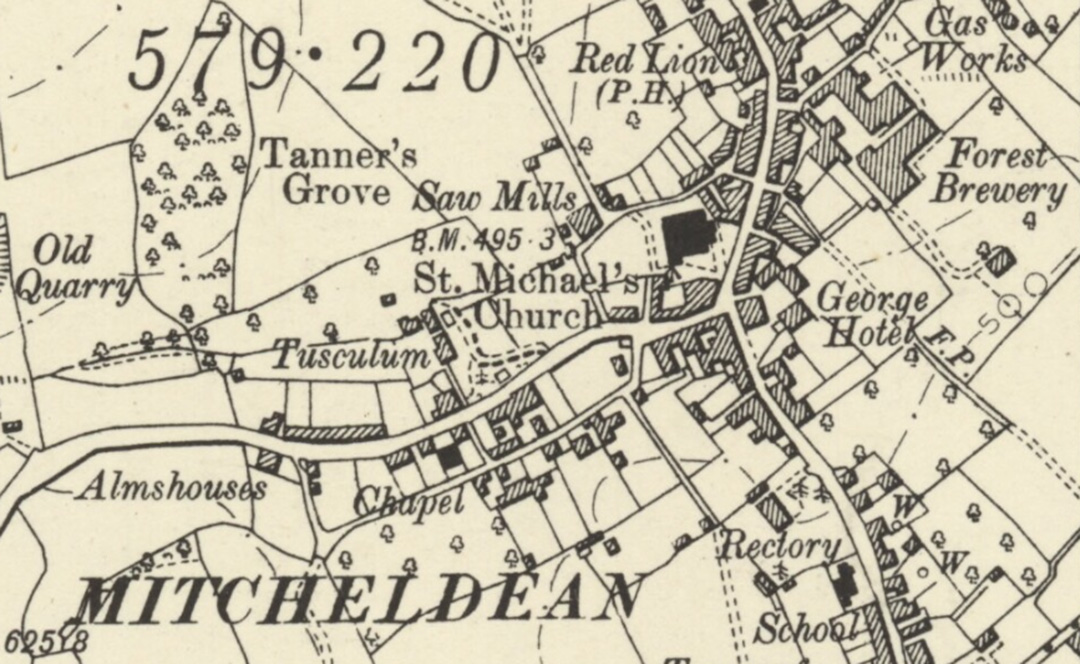
It must say something of Herbert’s personality and achievements as a scholar against the backdrop of a father who was a drunkard and bankrupt, that he was taken on as a Pupil Teacher. This must have been around the time of his father’s debtor’s hearing—the usual age for being employed by a school in this way was 15 or, at most, 16. Even if Herbert’s academic ability and moral rectitude were exemplary, there would have been a natural reluctance to employ someone from a family who had achieved a degree of notoriety in the community. It must also speak of an enlightened attitude and graciousness on the part of the school headteacher, governors and Parish Church incumbent. Herbert wasn’t alone in aspiring to a teaching career. Sisters Marcella (3 years younger) and Laura (10 years younger) followed in his footsteps. George was obviously a good role model and advertisement for the profession. Although little is known of their mother Elizabeth, much of this success must have been due to her unstinting nurture and encouragement.
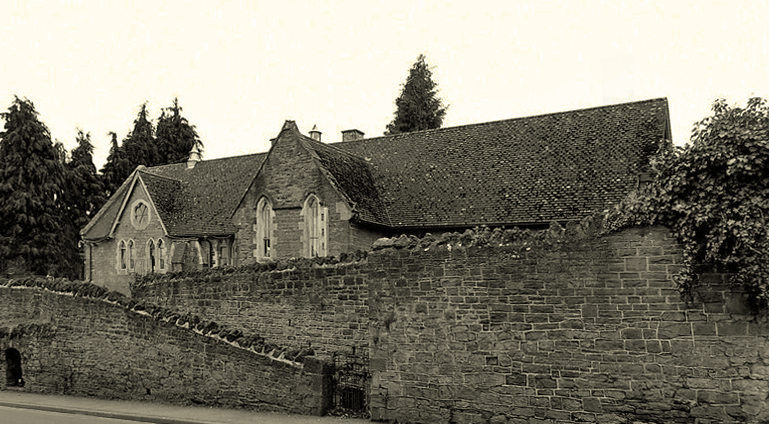
Derivative work by J Vickers, original photo © Jaggery (cc-by-sa/2.0)
The Census of 1901 records William still as a Pupil Teacher. This is unrealistic for a twenty-year-old: by this age, all would have moved on to an Assistant Teacher role. The incorrect title was perhaps as a result of the chaotic home life: his father, as nominal head of the house, would have had the responsibility of providing the information to the census enumerator; even in the best regulated families mistakes were made in the rather specific titles of pupil teacher, student teacher, assistant teacher and uncertificated teacher. Herbert’s college Student Record shows that he was an Assistant Teacher before leaving the school. An obituary adds that in 1905 he moved and began a one-year appointment as an Assistant Teacher at Hampton Wick Endowed Boys’ School, Middlesex. A change such as this must have opened a new, challenging but exciting world for someone who had hitherto lived in a small rural community. Details of the school are given in a trade directory, compiled in late 1914, just after Herbert had left for the Army:
English Endowed School (boys), erected in 1844, for 130 boys; average attendance, 130; John Thomas Mew, head master; Harry Locker, second master; Frederick E. West, third master; the school, under the scheme of the Charity Commissioners of 1882, is controlled by a body of 7 governors; Rev. Andrew Lewis Jukes M.A., The Vicarage, Hampton Wick, correspondent. There are four scholarships of the annual value of £10 each, tenable at a secondary school, awarded by the Trustees of the Parish lands; to any scholarship the Governors of the Endowed School add a further sum of £10 a year if the circumstances of the parent warrant such addition, and one scholarship of the total value of £300 (paid in such instalments as may be decided), tenable at any University, University College, or Training College; this scholarship is awarded by the Governors of the Endowed School. A period of residence, or attendance at school in Hampton Wick is required to render candidates eligible for scholarships. Particulars can be obtained from the clerk to the awarding bodies.
Kelly’s Directory of Middlesex, 1914
While working in these unqualified roles, Herbert had been studying in his spare time and had achieved a First Class pass in the King’s Scholarship Examination—this was no mean feat. His skill in the classroom had also been recognised by a Schools Inspector and he had received a recommendation for a one-year full-time training course (a reduction from the usual requirement of two years). The final progression towards being a fully qualified schoolmaster required Herbert to complete formal training and for this, Winchester Training College beckoned.
Student life in Winchester
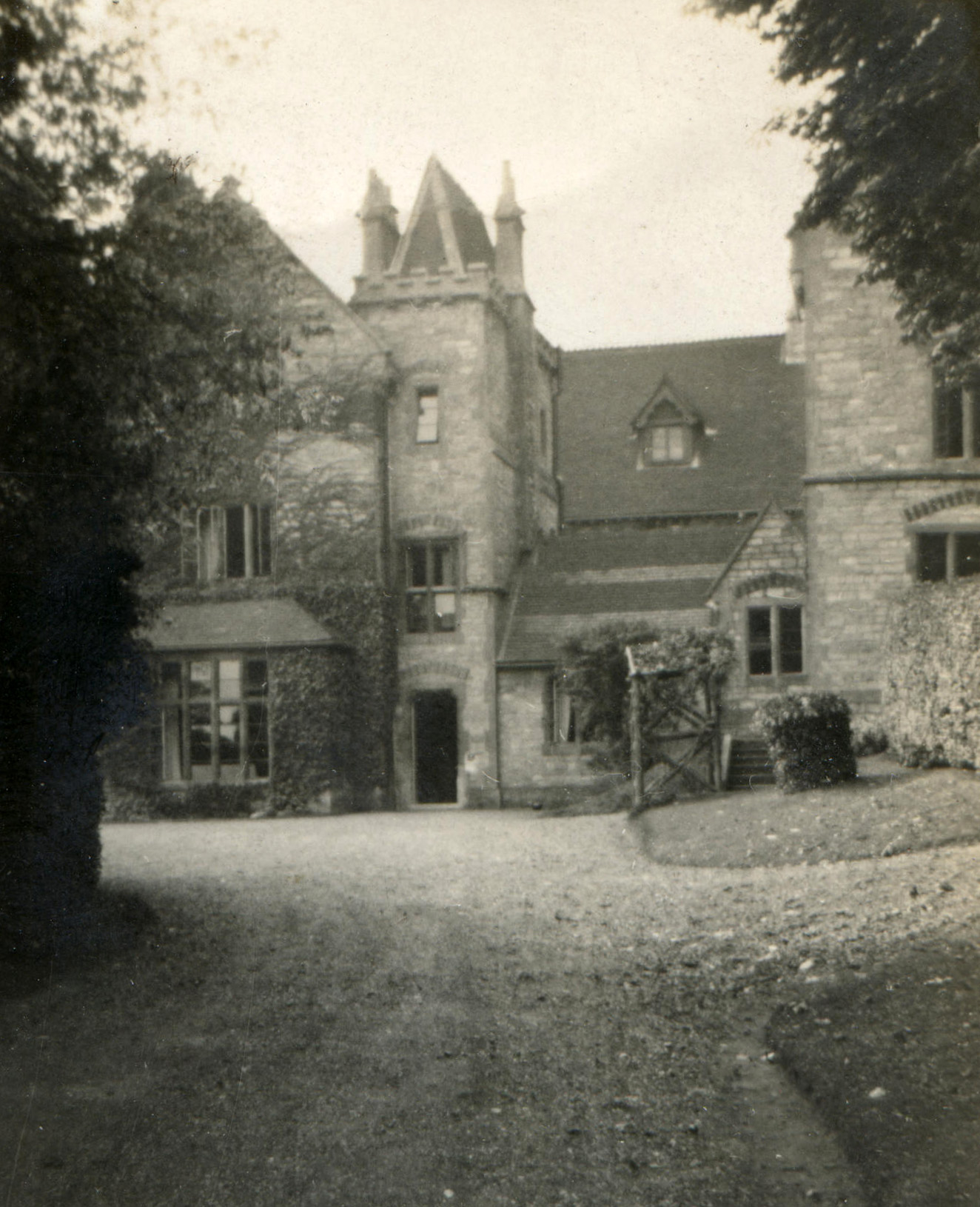
Herbert attended Winchester Training College from the Autumn of 1906 to Summer 1907. Little is recorded of him by name in the college archive. The student in-house publication, The Wintonian, reports For the College Smoker concert ‘Herbert Baker contributed several items on the programme.’ We are never fully told what a ‘smoker’ is but it seems to have been an evening of scheduled entertainments and performances.
As mentioned previously, Herbert’s formative years were spent when the family was in its non-conformist period. There were two non-conformist chapels in Mitcheldean and the family would have attended one of those. Children attending the Parish church would have learned their Catechism at an early age. The Shorter Catechism was a series of questions and answers to be learned by rote and examined upon at Confirmation. It includes the Creed, Ten Commandments, Lord’s Prayer and Sacraments. It extends to around 2,000 words. It is likely that the Commandments and Lord’s Prayer would be familiar to all brought up in nonconformity, but credal statements and sacramental theology may either have been poorly understood or perceived quite differently. It is possible that Herbert’s mastery of the Catechism may have been a challenge.
There is a good example of this in the diary of fellow college student William Smoker (no link with ‘smoker’ concerts). Not only did lack of Anglican theological background affect those from a non-conformist tradition, but also those brought up in Board (i.e. local authority) Schools. William Smoker, who entered college in 1902 at the age of 21, had taught for nearly five years as a pupil-teacher in an East London dockland area school. He spent half of each day at the school and the other half at the Woolwich Pupil Teacher Centre. His religious education had, however, not received the same attention as those pupil-teachers serving in Church schools, and on entering college he encountered some difficulties. Remembering some of these difficulties in 1966 he wrote in a retrospective article:
The Prinny was most assiduous to us in his twice a week Divinity lectures. I had not been apprenticed in a Church of England School, and although I never appeared before the Principal for a breach of College rules, I was interviewed by him twice for my failing in Prayer Book history and for my inability to answer such Catechism questions as, ‘What did your Godfathers and Godmothers then for you?’ [sic]
Recollections
On leaving college in 1907, age 27, The Wintonian informs us that Mr. Baker went to teach at St. Mary’s School, Sunbury on Thames, and that is where we find him when the census is taken in 1911. Again, the obituary confirms this (calling it the Sunbury Parochial Schools) and adds that he remained at this school until his enlistment into the Army. The school was St. Mary’s Public Elementary School. The Boys school was built in 1826 and a Girls department was added in 1879. There was also an Infants’ School. Herbert would have taught under the master Mr. A. Hakes. School numbers had almost reached maximum capacity in 1914 when average attendances were Boys: 220, Girls: 160, and Infants: 100 (Kelly’s)
The post he had obtained was as an Assistant Teacher. Towards the end of 1911 he married Elsie Susan Fletcher, two years his junior (Born 1882, Hillingdon, Middlesex). Elsie was also a teacher and was living in Sunbury. St. Mary’s is the only local school in existence in this period so it is likely that they both taught and met there. He was later to be promoted to Senior Assistant Master at the school and they lived in the delightfully named Sunmead Cottage.
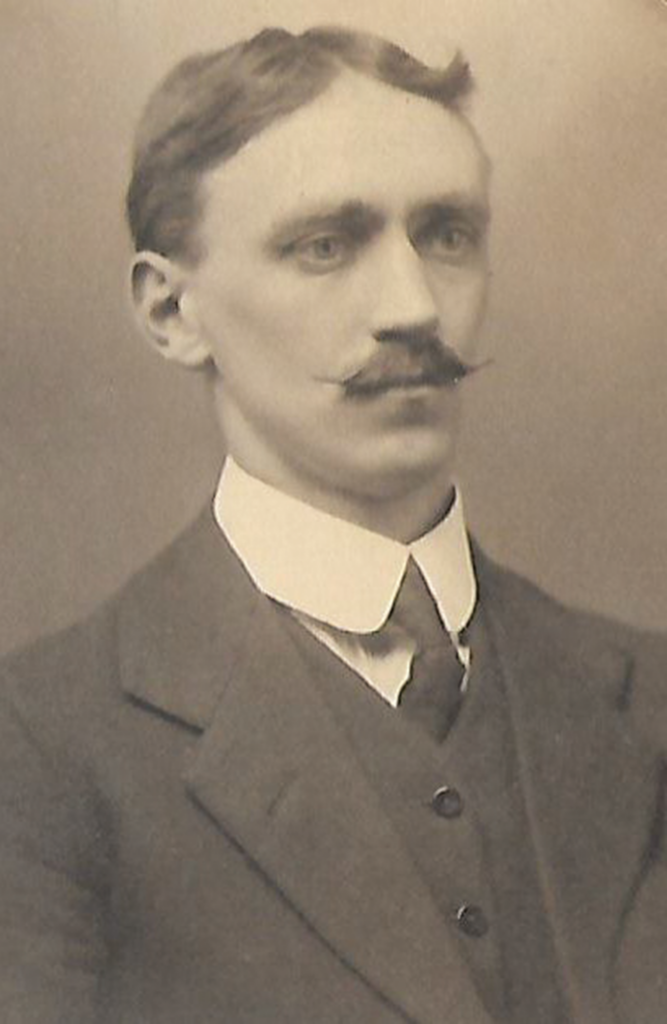
There is no record of any children from their marriage. In 1939, Elsie was recorded as being a school teacher and living with her younger sister Mildred in Twickenham. When Elsie died at Twickenham in 1957, probate was granted to her 71 year-old brother, Alan Gordon Fletcher.
The Great War
In August 1914 he left behind wife, school and Sunbury and enlisted into the 23rd Battalion County of London Regiment at Clapham Junction, near where the newly-formed Regiment was stationed. In the somewhat confusing numbering of battalions, the 23rd later became the 1st 23rd Battalion (1/23rd) as soon as a 2nd 23rd Battalion (2/23rd) began to be formed. We get a taste of Herbert’s experience in the audio diary of Stanley Adams Haughton, a fellow soldier of the 1/23rd:
For the next few weeks my abode was at the Regimental Depot, St. John’s Hill, Clapham Our daily march to and from Wimbledon Common was thrilling—some of us had rifles, some Army jackets without Army trousers and vice versa—what a rag time lot we must have looked Our marches were treated like heroes and felt so proud of ourselves being led by our Regimental Brass Band. Fruit, chocolate and cigarettes were thrown into our Ranks as we marched.
Great War Forum transcribed audio diary
The next stage was training at St. Alban’s. Haughton again:
By this time the whole Regiment was well equipped with all active service regalia and we moved to St. Albans. After 4 months there with hard military training we embarked for France Live ammunition was dished out to us which of course meant that our fun and games life was at an end, and I remember feeling a little scared and apprehensive when we were told our duty was to kill Germans.
Herbert’s Medal Index Card shows that he entered the theatre of war on Sunday, 14th March when the Regiment landed at Le Havre.
The first action that he would see would also be his last. The major Battle of Festubert (part of the larger Second Battle of Artois) was planned to assist the French 10th Army’s offensive at Vimy Ridge by diverting German men and resources to the British front. The immediate objective was an advance of 1,000 yards and the capture of German trenches, along a 5,000-yard front. This was to be the first battle of attrition and the first British night attack of the war. His honesty, courage and sense of duty is evident in a letter to written his wife, before going into the trenches: ‘Of course there is just the possibility that something may come my way. If so you will know that I went as I should wish to do, and did not save myself at others’ expense.’ (Middlesex Chronicle).
The Battle commenced on 13th May with a bombardment of German positions by 433 guns firing 101,000 shells in a 60-hour period. The poor quality of munitions resulted in many shells failing to explode; after the conclusion of Festubert, this failure caused a political crisis, the fall of the Asquith administration and the appointment of a coalition government with David Lloyd George in the new post of Minister of Munitions.
Of course there is just the possibility that something may come my way. If so you will know that I went as I should wish to do, and did not save myself at others expense
The battle was complex with attacks and counter-attacks, successes and failures. Herbert made it to the very last hours of this 13-day battle. What he went through we cannot imagine, but again we have an eye witness in Stanley Haughton, where he singles out his experiences at Festubert as his worst of the war:
The Battalion trek to the Front Line Trenches as we advanced seemed never ending through barbed wire, mud and water in some places to our waists. I remember Hanbury, such a fine looking grand boy who I knew he was few yards in front of me trudging through the water when suddenly he dropped—a German sniper had got him through the head. There was no stopping to attend to the dear boy with hundreds of us pushing from behind in our wild rush to our advanced trenches, and he was therefore trampled to death by us all.
The wait before ‘Going over the Top’ was really tense. An experience I never wish to have again, and pray God none of my dear ones will ever have. I remember seeing fellows around me kneeling in the mud praying. I thought to myself ‘Be still, and know that I am God’, and resigned myself to my fate. At the time Jerry was giving us all he had in the way of cannon fire, as he knew we were about to attack. The noise was terrific with our own guns from behind blazing away at the German line of trenches we were being ordered to capture. I can see my Platoon Commander, Lieut. Rowley, quite near me with shivering hand looking at his wrist watch for zero hour, and then, with revolver in the other hand he shouted ‘Over the top Boys’
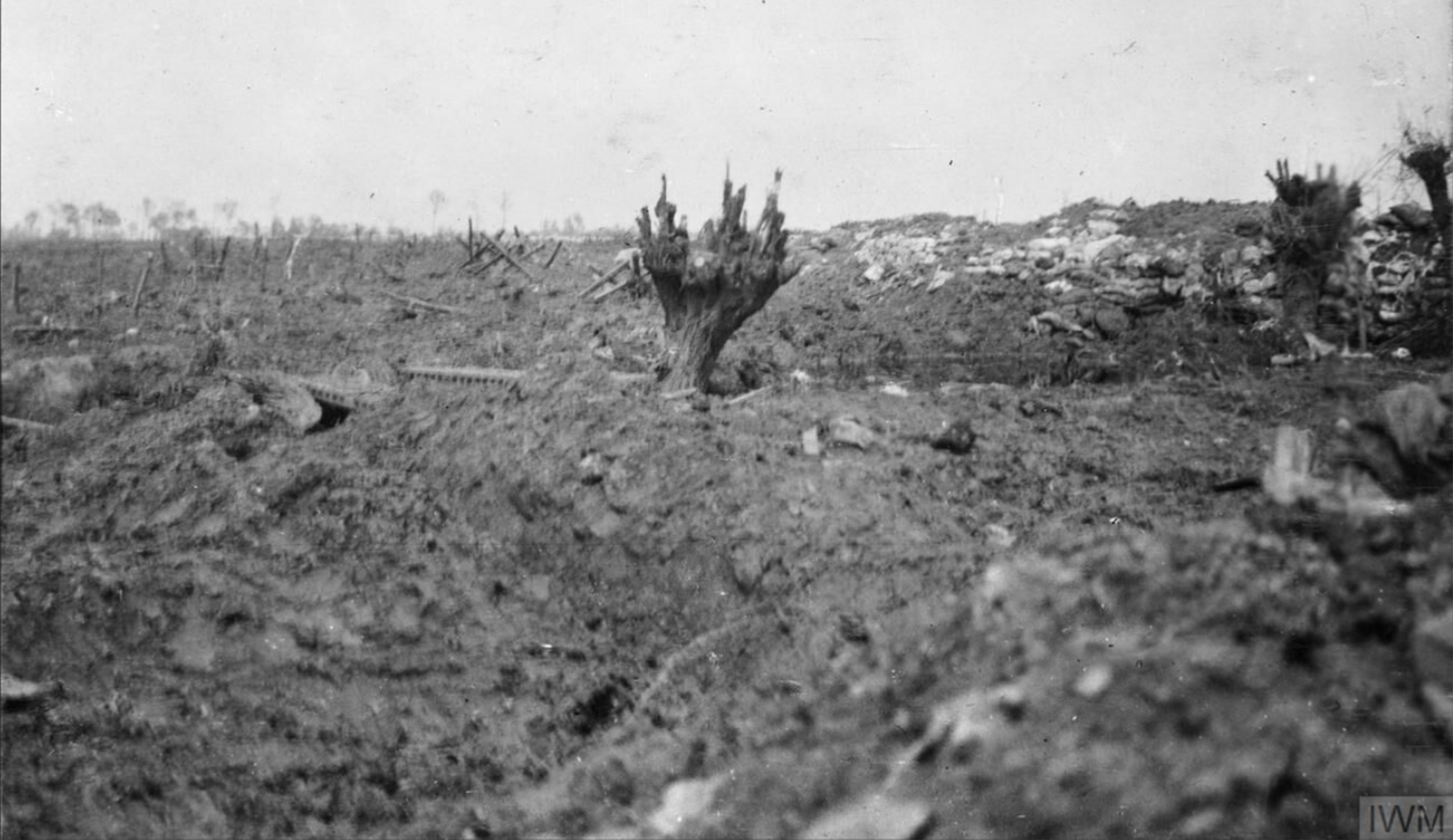
Their objective was to capture an enemy trench and this they did. However, it became a death trap as their new position was shelled by German artillery who had a clear view along the line of the trench from the right. The war diary relating to his approximate time of death, says
7.30am Enemy began to shell captured trench very heavily from an enfilading position on right flank, causing many casualties to the 23rd and 21st Battalions holding the position. All officers of 23rd Battalion became casualties, and on this being reported I ordered some officer in the front trench to be sent along to look after the surviving men and to tell them to hold on at all costs.
A pencilled report to Battalion HQ from the front line sums up the last day of the Battle of Festubert for the 23rd and 24th Battalions of the London Regiment:

Herbert, like Stanley Haughton, had responded to his officer’s command and climbed the ladder at the command and scaled the parapet. During the attack he fell, presumed killed in action on the morning of May 26th. His body was not recovered. Over forty percent of the battalion’s men were casualties. Herbert’s death in the Register of Soldiers Effects is recorded as On or since 26.5.15. In action. Death presumed and it names Elsie as recipient of his effects. Although his date of death is recorded in all major documentation as 26th May, his newspaper obituary reports a different and probably incorrect date:
THE FATE OF MR. H.G. BAKER.
Little hope is now held out as to the safety of Mr. Herbert G. Baker, of Sunmead Cottage, Green-street, who was so well known in Sundbury, and was senior assistant master at St. Mary’s Parish School. He was former assistant master at Hampton Wick Endowed Boys’ School. No official notification of his death, only that of missing, has been received, but it is feared that in face of testimony supplied by some of his comrades, and especially by his company sergeant-major, little doubt can be entertained as to his fate, and that he was killed at Festubert on May 28th.
Middlesex Chronicle
Herbert is remembered on the Le Touret Memorial, France (Panels 45 and 46). His grave is unknown. He was survived by George Hook Baker (Father, d.1919), Elizabeth Baker (Mother, d.1926), Elsie Susan Baker (Wife, d.1957).
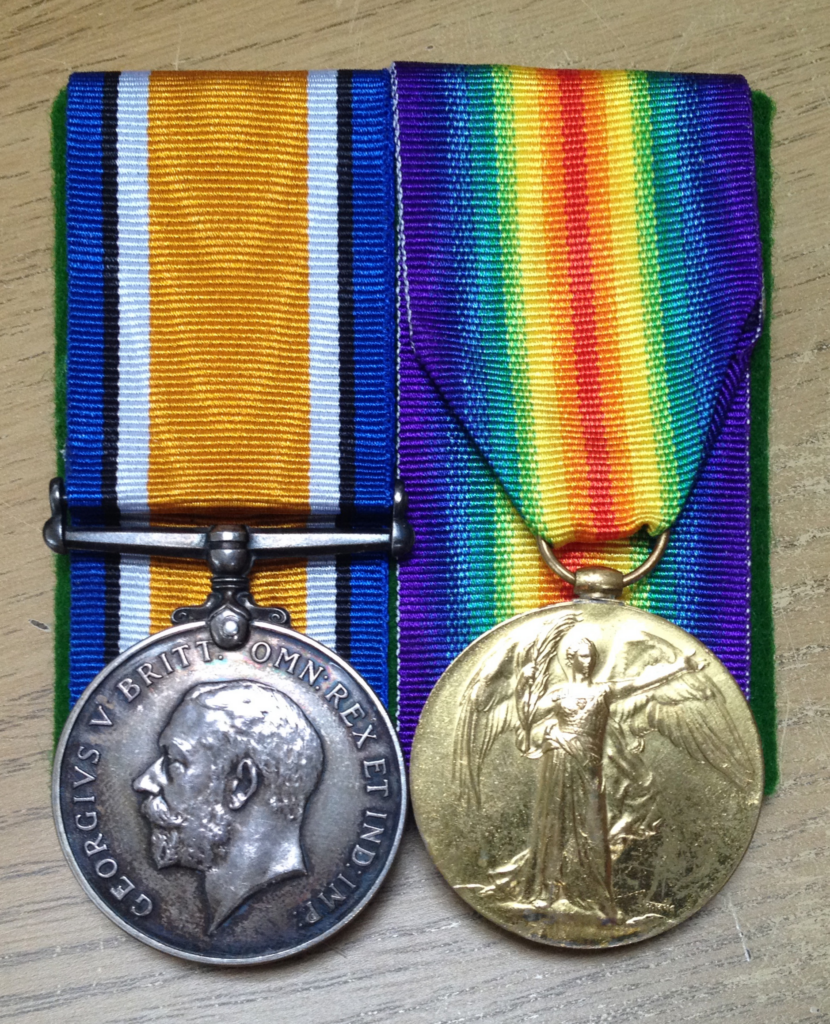
Image reproduced by permission
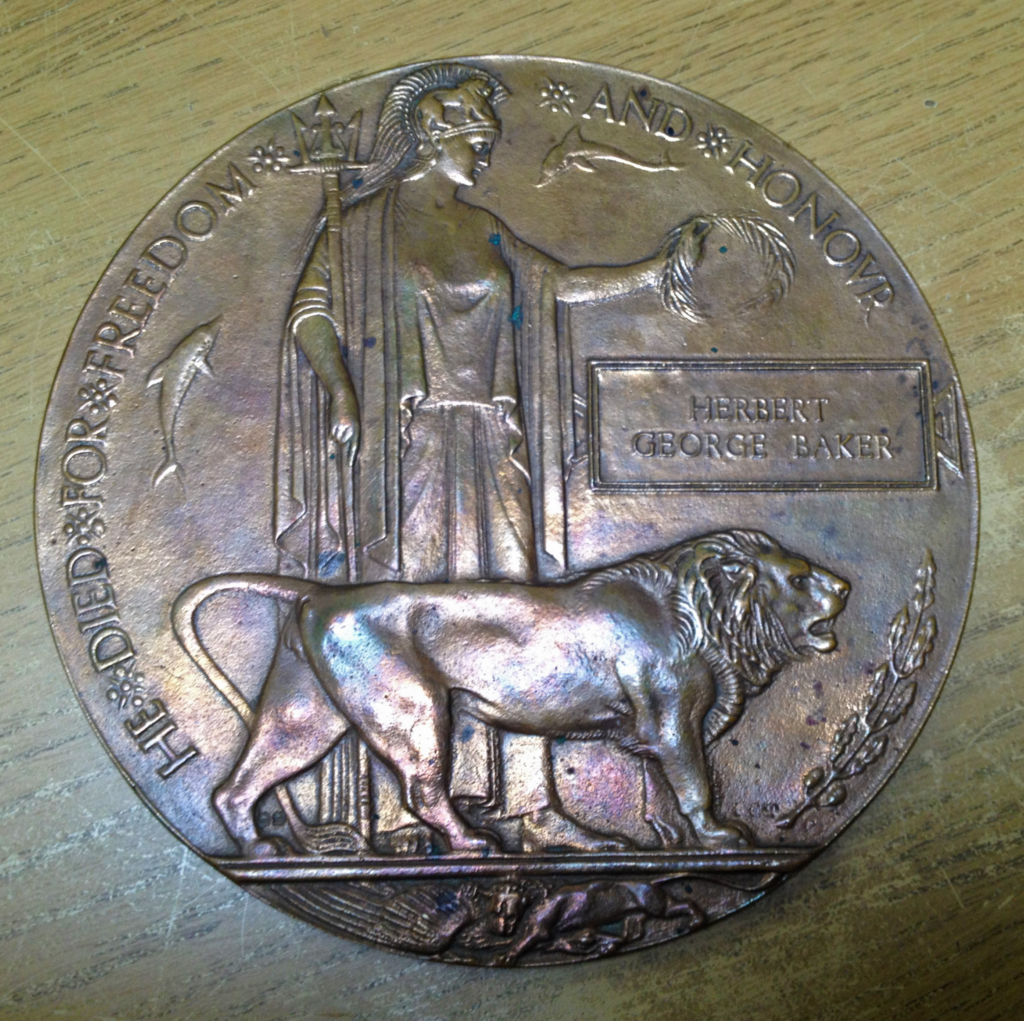
been sent to his family
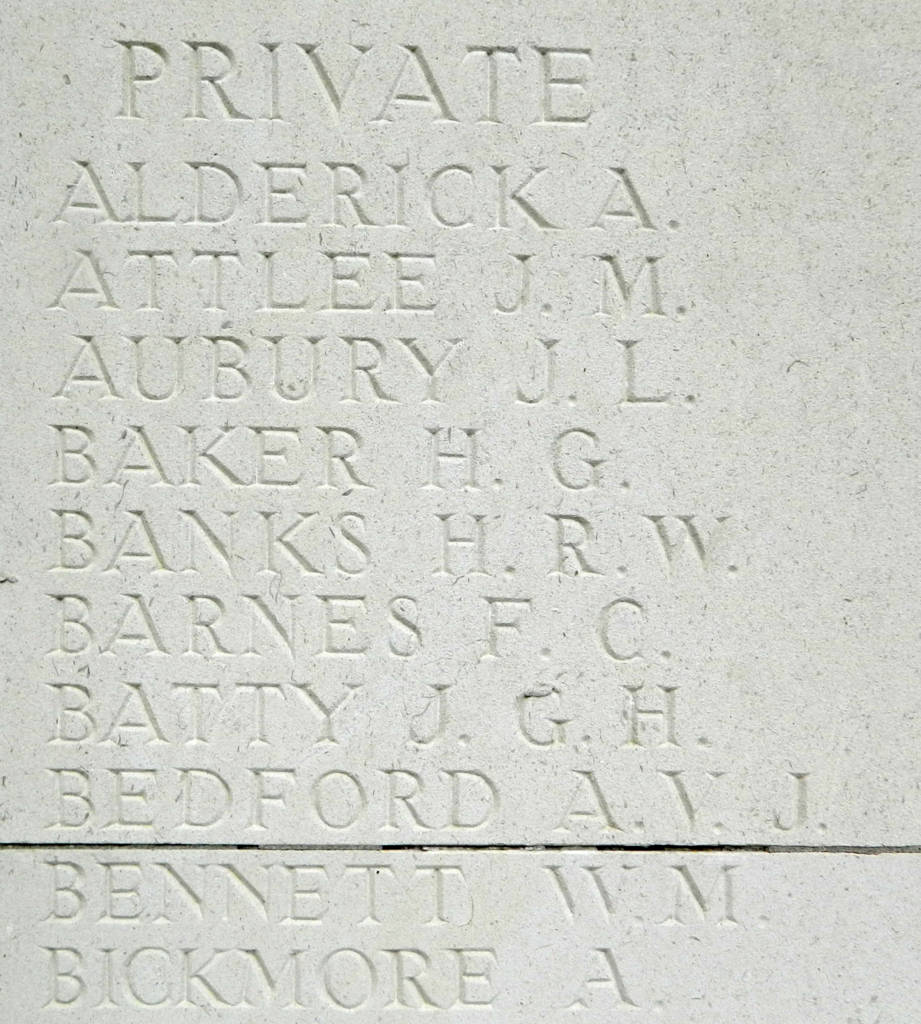
Researcher and Author: John Vickers
Sources
For all general Winchester training College records please see the list of University of Winchester sources at the end of the following Sources list.
Ancestry (2018) Home page. [online] Available at: www.ancestry.co.uk [Accessed 2018].
British History Online (1996). Mitcheldean, pp.173-195. [online] Available at: http://www.british-history.ac.uk/
vch/glos/vol5/pp173-195 [Accessed 19 Dec 2017].
Britishnewspaperarchive.co.uk. (2018). Register | British Newspaper Archive, The Middlesex Chronicle, Saturday, August 7th, 1915, p.7. [online] Available at: https://www.britishnewspaperarchive.co.
uk/viewer/bl/0000227/19150807/
156/0007spaperarchive.co.uk [Accessed 18 June 2018].
Britishnewspaperarchive.co.uk. (2019). Register | British Newspaper Archive, Gloucester Journal – Saturday 23 March 1895. [online] Available at: https://www.britishnewspaperarchive.co.
uk/viewer/bl/0000532/
18950323/121/0007 [Accessed 29 Apr. 2019].
The Commercial Gazette (1895). The Commercial Gazette (London), issue Wednesday, Feb 20 1895, p.13. [online] Available at: https://www.newspapers.com/
newspage/35631887/ [Accessed 19 Dec 2017].
Commonwealth War Graves Commission, (2018). Home page. [online] Available at www.cwgc.org/ [Accessed 19 Dec 2017].
The Edinburgh Gazette (1895). The Edinburgh Gazette, issue 10651, 22 February 1895, p.227. [online] Available at: https://www.thegazette.co.uk/Edinburgh/
issue/10651/page/227 [Accessed 19 Dec 2017].
Gloucester County Council (2018). Gloucester Archives Geneological Search. [online] Available at: http://ww3.gloucestershire.gov.uk/
genealogy/Results.aspx [Accessed 19 Dec 2017].
Great War Forum (2018). 23rd (County of London) Battalion, the London Regiment, Post #307, Memoirs of Stanley Adams Houghton. [online] Available at: http://1914-1918.invisionzone.com/forums/
topic/82967-23rd-county-of-london-battalion-
the-london-regiment/?page=13 [Accessed 19 Dec 2017].
Kelly’s Directory (1914). Kelly’s Directory of Middlesex 1914, p.198. [online] Available at: http://specialcollections.le.ac.uk/
cdm/landingpage/collection/
p16445coll4 [Accessed 19 Dec 2017].
National Library of Scotland (1903). Gloucestershire XXIII.SE (includes: East Dean; Hope Mansell; Lea; Longhope; Mitcheldean; Weston Under Penyard.) Revised: 1901 Published: 1903. [online] Available at: http://maps.nls.uk/view/101453094 [Accessed 19 Dec 2017].
Rose, M. (1981) A history of King Alfred’s College, Winchester 1840-1980. London: Phillimore.
Vickers, J. The University of Winchester Chapel Memorial Rail image.
University of Winchester Archive at Hampshire Record Office
All the following documents are general background resources for the WTC Fallen project and provide general period background of students, college life, staff, activities, etc. The Finding Numbers are given to aid archive searches.
47M91W/P2/4 The Wintonian 1899-1900
47M91W/P2/5 The Wintonian 1901-1902
47M91W/P2/6 The Wintonian 1903-1904
47M91W/P2/7 The Wintonian 1904-1906
47M91W/P2/8 The Wintonian 1905-1907
47M91W/P2/10 The Wintonian 1908-1910
47M91W/P2/11 The Wintonian 1910-1914
47M91W/P2/12 The Wintonian 1920-1925
47M91W/D1/2 The Student Register
47M91W/S5/5/10 Photograph of 5 alumni in Mesopotamia
47M91W/Q3/6 A Khaki Diary
47M91W/B1/2 Reports of Training College 1913-1914
47M91W/Q1/5 Report and Balance Sheets 1904- 1949
47M91W/R2/5 History of the Volunteers Company 1910
47M91W/L1/2 College Rules 1920
55M81W/PJ1 Managers’ Minute Book 1876-1903
71M88W/6 List of Prisoners at Kut
All material referenced as 47M91W/ is the copyright of The University of Winchester. Permission to reproduce photographs and other material for this narrative has been agreed by the University and Hampshire Record Office.
